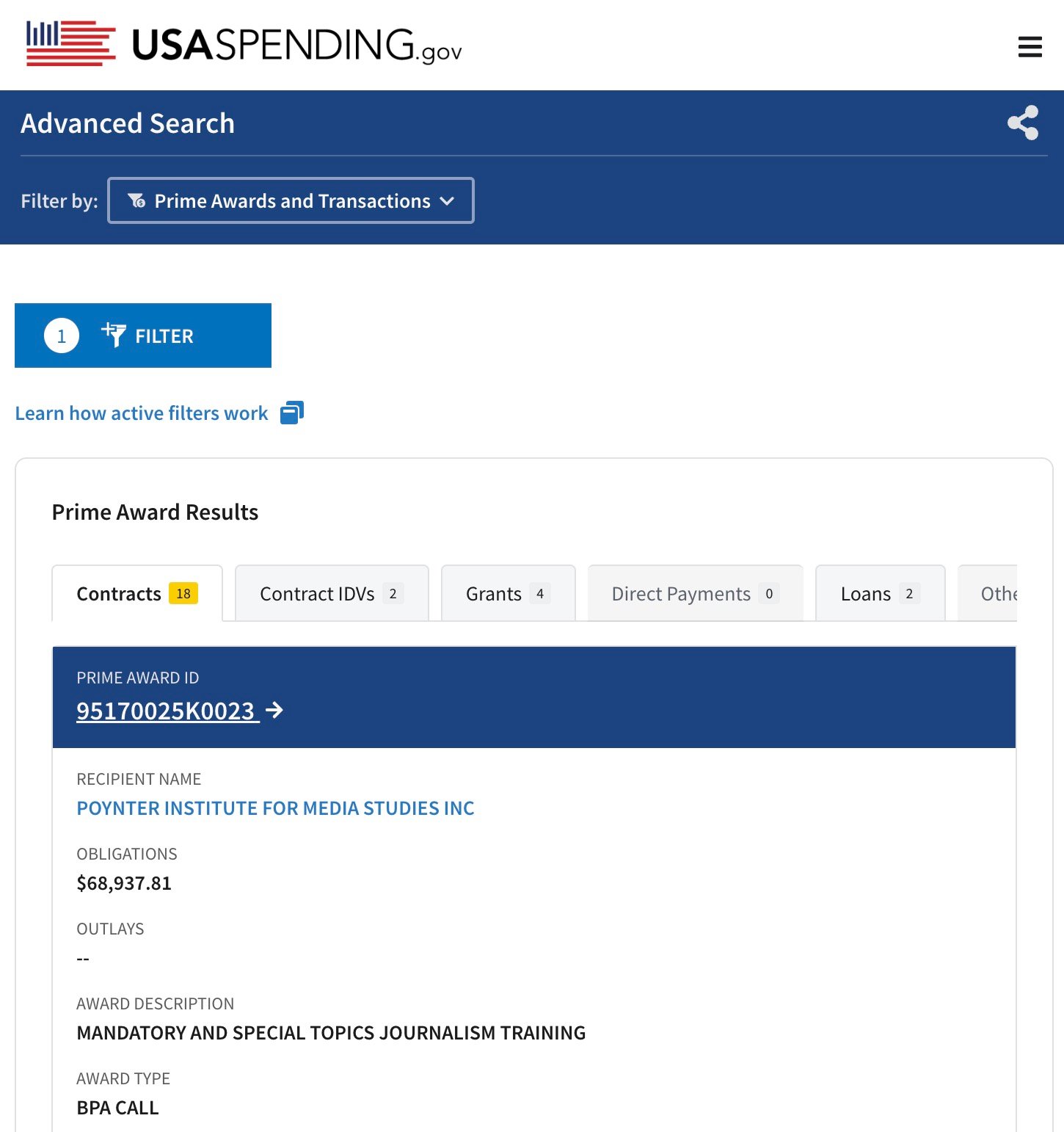The Poynter Institute for Media Studies is one of the organizations that received US taxpayer money over the last 12 years – most of it during the Biden administration and during about six months leading up to the former president’s election.
The Media Research Center (MRC) said it discovered this by searching the USASpending.gov site, which showed Poynter received the majority of funds from the Small Business Administration ($1.67 million), followed by the US Agency for Global Media and the State Department with $423,781, and $367,435.

The total amount the government gave Poynter in obligations from 2013 until this year is reported to be at least $2.4 million.
The problem with this “arrangement” is not simply irresponsible spending of public money, but the nature of the Poynter Institute.
Since 2015, it has been running the International Fact-Checking Network (IFCN), certifying and supporting more than 170 fact-checking outfits around the world with training, resources, and organizing of events.
Throughout the former administration’s time in power, conservatives and others engaging in “disfavored” speech online accused these third-party groups of bias that led to censorship.
One example is Meta’s now abandoned fact-checking program, which included IFCN-certified groups, Poynter’s own PolitiFact among them. Content flagged by them on Facebook and Instagram would reportedly get 95% fewer clicks and 38-47% fewer share completions.
In other words, it was a powerful tool to suppress speech and opinions – and, this appearing to be yet another roundabout way the government found to fund such efforts is what makes it particularly politically egregious.
Some of the controversies involving Poynter include at the time Associate Director Cristina Tardaguila sitting on the Global Disinformation Index (GDI) advisory board, and an attempt by the organization in 2019 to establish a blacklist of about 30 conservative news outlets.
In 2023, IFCN tried to convince YouTube, of all social media giants, that it was not censoring enough, recommended ways to “remedy” that – and asked for money from the platform, so they could “collaborate” more effectively.
As for the money IFCN did receive – from 2016 until 2019 alone, $492,000 came from none other than George Soros.










